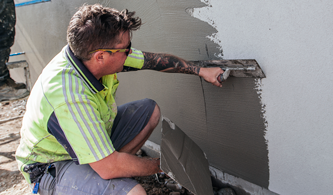Remodelling your house or starting a home renovation can be extremely overwhelming, especially if you haven’t done it before. Whatever the project is, your remodelling project may involve so many details that it can easily become daunting.
The key to remodelling your house on a budget is primarily to plan the entire process effectively. Therefore, we have for you – steps and tips for planning a home remodel – to choose how to order and build a detailed plan that will help reduce the stress while keeping you on schedule.
Divide and Conquer – Build a detailed Plan
As mentioned earlier – effective planning is the key to effective execution. And hence, the first step in the entire process is to build a plan that clearly states the goal of your renovation and includes an outline of the work that needs to be completed.
The plan must include
- blueprints of your finished project,
- project steps divided into DIY steps and the steps that will require you to hire a professional,
- your ultimate goal for each room in the house.
When to start: 6-12 months before you want to start your project.
Budgeting
The next step in planning a home renovation is to determine the budget and financing. It is important to keep in mind that you can’t overestimate your budget. Keep your budget underestimated and then research for things you need.
Your budget must include the labour costs, the cost for permits and building materials, and the cost of cosmetic touches.
To build your budget-
- finalize financing and set aside at least 10 % of the set budget for unexpected costs,
- request cost estimates from building designers in Perth,
- price out all the materials needed for the project.
- If the cost estimates do not come under the set budget, eliminate the project elements that are a lower priority.
When to Start: 3-6 months before starting your project.
Hire Builders
Next, you’ll need to hire a team of builders or a contractor. Don’t choose your team on cost estimates alone, when researching for them online, also consider:
- Years of experience – A contractor who has been in the business for long is a safer bet than one who is new to the business.
- License – Make sure your contractor has all the required certifications specific to their line of work.
- Certificate of insurance – He should have workers’ compensation insurance for the type of work they perform.
- References – Ask around for references. This way, you’ll know that your contractor is not just good on paper.
- Payment schedule – It’s extremely important to discuss payment terms before the project begins.
If you are hiring multiple builders for the project, make sure you know who is in charge of the project to avoid confusion or slowdown later.
When to start: 2-3 months before the project’s start date.
Build a Timeline
Now, it’s time to put together your timeline. Once you have decided your budget and hired a team for your project, it’s time to decide a specific date by which the project should be completed. Work backward from that date instead!
Sit down with your contractor and discuss which areas of the house need to be completed first, how long will it take, and what areas can be completed concurrently.
Additionally, make sure your timeline includes time to clean out the entire house or the project area and accounts for holidays that your contractors may take off.
Important Tip: Set a date of completion that includes a few days’ worth of wiggle room for unexpected situations.
When to start: 2-3 months before the project’s start date.
Lastly, Pack Up and Prepare for the Remodel
Now that you have completely planned your home remodelling project, it’s time to clear the space and make plans to avoid using the area when it’s under construction.
When to start: Plan it 2-3 months before the project begins; pack up and move 2 weeks before the start date.





